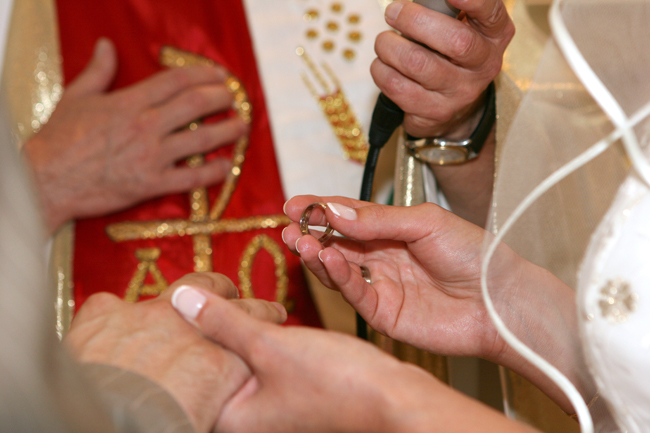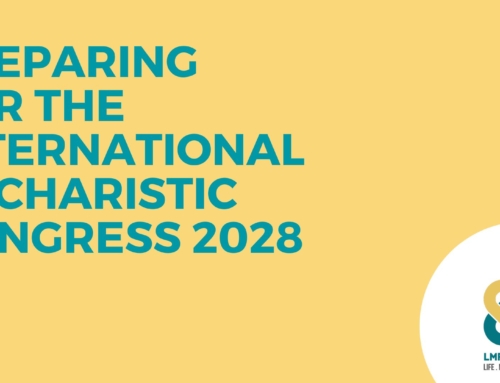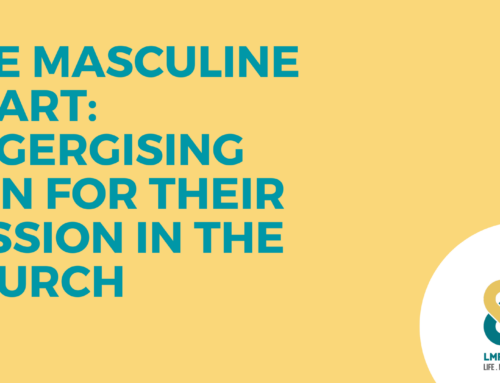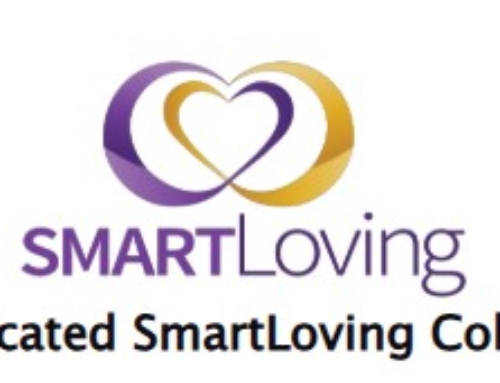Marriage Preparation
This session was presented by Fr Tony Percy at the Archdiocese of Sydney Clergy conference in 2012. He describes his practice for interviewing and preparing an engaged couple for marriage.Meeting with the Couple
We should not underestimate the impact that we can have in helping the couple deepen their understanding of what they are about to enter into. Likewise, we should not underestimate their capacity to engage with the material they receive at preparation courses and with us in our meetings with them.
One of the interesting statistics to come out of the recent Archdiocesan Report to Rome is the fact that while marriage rates continue to languish at historical lows in Australia, nevertheless as a percentage of all Christian marriages, Catholic marriages are skyrocketing. Pope Benedict XVI has often spoken of the Church becoming a Creative Minority. Catholic marriage should be viewed in this light. Hence, the importance of adequate preparation.
The Archdiocese requires that couples complete a marriage prep course. The priest should recommend a course suitable to the capacity of the couple.
Initial Meeting
In general, the first meeting should be concerned with establishing rapport and trust with the couple. This is especially true if we don’t know them and/or if they are not all that strong in faith. Perhaps we can thank them for coming to be married in the Church, depending on the circumstances. Certainly, congratulating them for their upcoming marriage and showing some enthusiasm for their decision is a good idea. By this we let them know that we are interested in their lives.
- It is a good idea to fill out the paperwork at this stage, as this helps conversation and here we can outline what is required – baptism and birth certificates, marriage preparation course, etc. Filling out the state forms will establish if there have been prior marriages and what needs to be done.
- At this stage, showing them samples of marriage booklets is helpful and having available for them the prayers of the marriage rite and the readings from the Word of God for marriages is a good idea. In my opinion, these texts help them to see the sacredness of what they are doing. This is especially true of the vows and the nuptial blessing.
- It is a good idea sometime during this initial meeting, to let them know that what they are doing is of great significance, since marriage is the basis of family and family is the basis of society.
- For this reason, you can then let them know that you would like to meet them at least two more times to discuss the essential elements of the sacrament of marriage. At this stage, I let the couple know that I will meet them separately the next time and I give them some idea of the nature of the discussion. I tell them that the meeting is for their benefit – for their own self-knowledge and a deepening of their knowledge of marriage.
Second Meeting
The second meeting is done one-on-one and takes approximately 1 hour for each person. It could be done together, but I have found that meeting with each person separately allows a very fruitful and sincere discussion.
The questions are best asked in an open-ended manner and not quite as specifically as written here. I have the questions in front of me, the couple do not. Each meeting is different and prudence is required in asking, changing, expanding and omitting certain questions.
As the person begins to talk, they usually cover other areas and so some questions are rendered redundant. Some people are more talkative than others. I have found, to my surprise, that often people of other faiths – or no faith – have really appreciated the time to chat.
Questions
- Would you like to talk a little about your family situation? Would you say you have had a happy childhood?
- Your relationship with mum and dad has been okay?
- Would you say your family life has been relatively peaceful? Have violence, alcohol or drugs played a part in the family?
- Has suffering been part of your experience in life to date?
- Could you tell me a little about yourself – your strengths and weaknesses? What do you find joy in? What makes you sad? What are your goals in life? What is most important to you?
- Tell me a little about your fiancé – strengths and weaknesses? What makes them tick?
- If you can, talk a little about past relationships and how they might differ from this one?
- Who/What has formed your view of marriage? How do you understand marriage?
- Where do you want to be in 10/20/30 years?
- Are you sure you can be faithful? Will he/she be faithful to you?
- Are you looking forward to being a mum/dad? How do you see parenting?
- Have you discussed with each other how many children you would like? Have you heard anything about NFP (NFM)?
- You are getting married in the Church – did you want to say anything about your faith?
- Who has been a witness of faith to you?
- Marriage is a vocation – a calling – do you sense God’s hand in your relationship as you look back on it? Can you sense how God has brought you together?
- (If the couple live together.) You live together; I guess you know it is wrong? Could you live as brother and sister until the wedding day?
- Do you have any fears or worries about marriage?
- Do you have any questions?
Third Meeting
The meeting is facilitated by the answers to the above questions and is done together. This is generally quite interesting and usually a lot of fun, since the answers to the above questions are quite interesting and engaging. It is easy to draw out some critical catechetical and theological points from the discussion. Keep the notes you make to help you in your preparation for the wedding Liturgy and the homily.
I then introduce or re-iterate the three goods of marriage and get them to talk about how they see or understand these goods. Using the Rite of Marriage here, with its introduction and exchange of vows, is helpful in reinforcing the great gifts they receive when they marry.
Wedding Practice
This is a great opportunity to meet with the extended family. I usually finish the preparation with a common prayer, which reinforces the sacredness of the celebration.
The Sacrament of Penance can be offered here, particularly if the liturgy is a Mass.
_______________________________________________ Fr Tony is the author of “Theology of the Body Made Simple”. Find out more here6th September 2012






Thanks Fr Tony – I love the way you have them in for an individual interview – I can well imagine that these meetings are very significant to the couple, though no doubt it is a little intimidating for some.